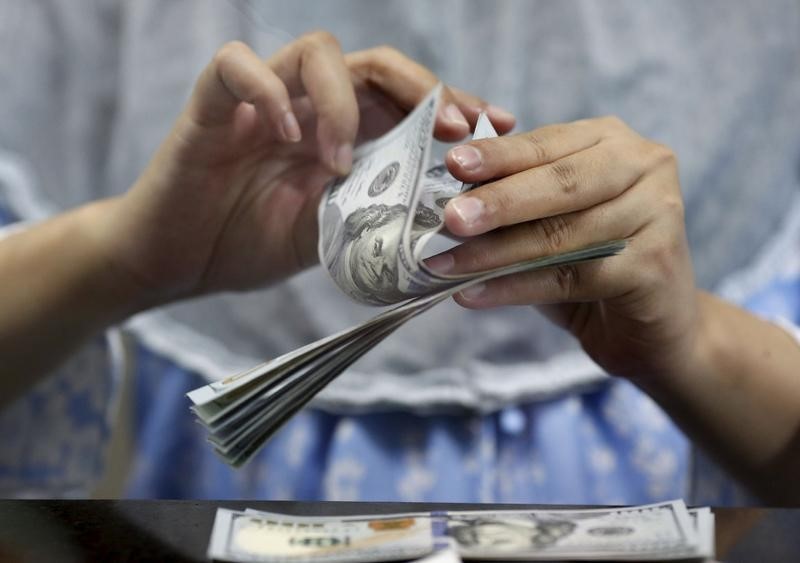By Gina Lee
Investing.com – The dollar was up on Tuesday morning in Asia, while the yen fell through the 120 mark for the first time since 2016. Investors continued to digest a hawkish speech from U.S. Federal Reserve Chair Jerome Powell that raised bets on higher U.S. interest rates and widened the policy gap on a dovish Bank of Japan.
The U.S. Dollar Index that tracks the greenback against a basket of other currencies inched up 0.10% to 98.602 by 11:51 PM ET (3:51 AM GMT).
The USD/JPY pair was up 0.36% to 119.90.
The AUD/USD pair inched up 0.01% to 0.7401 and the NZD/USD pair inched up 0.03% to 0.6886.
The USD/CNY pair edged up 0.12% to 6.3639 while the GBP/USD pair inched up 0.09% to 1.3152.
The yen fell about 0.4% to briefly hit 120.08 per dollar earlier in the session. It is down about 4% this month as soaring U.S. yields lured flows from Japan.
"Widening policy divergence is continuing to push the yen to more deeply undervalued levels against the U.S. dollar," MUFG currency analyst Lee Hardman told Reuters.
U.S. bonds and interest-rate futures retreated further overnight after Powell said policymakers needed to move "expeditiously" and teased the possibility of 50 basis point rate hikes.
Fed funds futures moved to price in an almost 2/3 chance of a 50 basis point hike in May 2022. They now predict the benchmark rate, which is currently below 0.5%, exceeding 2.5% in 2023. Benchmark 10-year U.S. yields soared 14 bps and, at 2.0914%, the gap on anchored 10-year Japanese yields is the widest in more than two and a half years.
The moves in the bond markets, alongside the continued fighting after Russia invaded Ukraine on Feb. 24 lent broad strength to the dollar elsewhere.
In offshore trade, the Chinese yuan traded at 6.3739 to the dollar, falling from recent highs and settling in a new range as investors await promised monetary easing.
China’s State Council pledged stronger monetary policy support on Monday but cautioned against flooding the market with liquidity. The government vowed to avoid measures that can hurt market sentiment. Expectations are also growing that the People’s Bank of China will loosen monetary policy to support the economy.
“Although the People’s Bank of China left 1-year and 5-year loan prime rates unchanged... on Monday, we still expect it to lower the reserve ratio requirement by 50 bp again, as early as Q1 2022," Scotiabank strategist Qi Gao told Reuters. "We maintain our short USD/CNH spot position."
